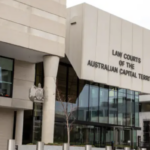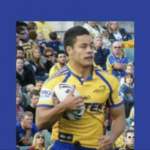NSW District Court Judge and Director of Public Prosecution at Loggerheads

New South Wales District Court Judge Penelope Wass has lodged a complaint to the Office of the Legal Services Commissioner against the state’s Director of Public Prosecutions (DPP) Sally Dowling, citing a series of grievances that have strained their professional relationship.
The tension between the two leading members of the legal profession has been building for some time, but it appears to have reached a boiling point, with each accusing the other of improper conduct.
Allegations of misconduct
The crux of Judge Wass’s complaint that Ms Dowling has engaged in unethical and potentially unlawful conduct in the pursuit of the interests of complainants, putting aside her duty as the state’s chief prosecutor to act fairly in the pursuit of justice.
Among the allegations levelled against the DPP are instances of withholding crucial evidence, manipulating witness testimony and attempting to influence court decisions through backdoor channels.
The allegations are serious and have shockwaves through the New South Wales legal community.
Failing to disclose evidence
Failing to disclose evidence in criminal proceedings is a serious matter, and one which prosecutors have been long been accused of throughout the nation, especially in sexual assault proceedings, potentially leading to miscarriages of justice.
The precise nature of the assertions against the DPP are not yet clear, although it appears they generally have to do with prosecutors potentially not serving evidence derived from a complainant and witnesses in a sexual assault trial.
Manipulating witness testimonies
Equally serious is knowingly or recklessly allowing false evidence to be adduced, and not disclosing inducements given to witnesses who then provide evidence.
Again, it is expected that further details in that regard will come to light in due course.
But what’s known about the allegations?
What is known, however, is that Ms Dowling initially made a complaint against Judge Wass during a sexual assault trial after her Honour ordered witnesses to surrender their mobiles phones in order to obtain important evidence regarding the alleged offending conduct.
Ms Dowling claimed that presenting phones somehow interfered with the complainant’s right to a fair trial – an extraordinary claim give the complainant is not a party to the proceedings but merely a witness like any other.
Judge Wass interpreted Ms Dowling’s complaint as unethical, especially in the context of the ongoing assertions by judges, defence lawyers and even some prosecutors that meritless sexual assault claims are routinely being prosecuted to trial, rather than being discontinued in accordance with DPP Guidelines.
Ms Dowling is also said to have emailed Chief Judge Huggett without the ‘consent of the other party of the Crown’, which is generally seen as improper conduct.
In her complaint, Judge Wass makes clear ‘the content and the timing of the complaint… [by the DPP] is a relevant matter.’
Judge Wass asserts both that Ms Dowling’s complaint against her inaccurately describes her Honour’s direction regarding the phones, but that secretly contacting the Chief Judge was deceitful.
The Judge further asserts that a ‘warning’ given to her by Ms Dowling that the DPP would take action if her Honour continued with her direction was ‘highly inappropriate, particularly from an experienced Senior Counsel.’
Legal Ramifications and Next Steps
In the wake of the explosive developments, both parties are bracing themselves for the possible legal ramifications.
The formal complaint is likely to trigger an investigation into her Honour’s assertions, potentially leading to disciplinary action against the state’s chief prosecutor in the event that the allegations are substantiated.
Win at all costs attitude
Concerns have long been expressed that Australian prosecutors have gradually been adopting a ‘win at all costs‘ approach to criminal prosecutions – especially in sexual assault cases.
While such an approach may be seen as generally descriptive of prosecutions in the United States, it is not the role of a prosecutor in New South Wales, or indeed anywhere else in Australia.
Rather, the role of a prosecutor is to present all of the relevant evidence before the court with a view to enabling the fact-finder to determine the truth, whether the fact-finder be a magistrate, judge or jury.
It may be speculated that the adoption of the Americanised approach – if that is indeed the trend – may be a response to pressure from the mainstream media and politicians to rectify the perceived low conviction rate when it comes to New South Wales sexual offence allegations.
Low conviction rate
In that regard, New South Wales police received over 7,000 reports of sexual offences each year, 10% of which result in convictions.
Research suggests charges are less likely to be brought where the alleged offence is considered to be relatively minor and/or where the suspect is unknown to the complainant.
It’s not over
As the dust settles on this legal showdown, one thing remains clear: the clash between Judge Penelope Wass and Sally Dowling SC has laid bare the complexities and challenges inherent in pursuing justice.
The public can only watch with bated breath as this high-stakes drama unfolds.






